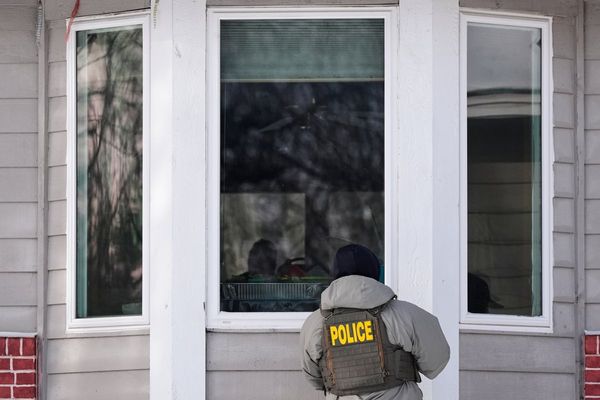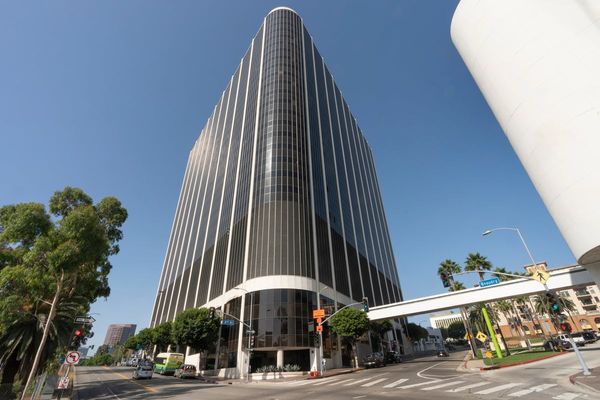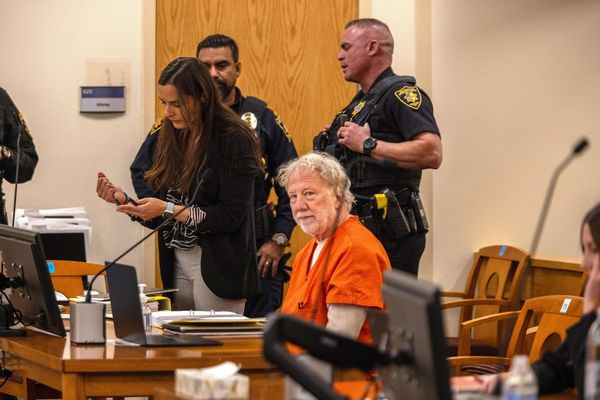
Former Chicago Police officer Jason Van Dyke likely had his first meeting with a parole officer over the weekend.
The state Department of Corrections Parole Division may have inspected his home — or wherever he is living — to ensure the neighborhood is deemed safe and there are no weapons, drugs or felons on the premises. They can return at any time of the day or night. They can demand he provide urine for a drug test. He will need permission to leave the state, sign a contract, have surgery, move to a new address or take a new job.
Last week, Van Dyke joined the ranks of some 25,000 Illinois residents currently serving mandatory supervised release, what was once called parole. While he is no longer in prison after serving three years and four months, his movements outside of his home will be subject to the approval of the IDOC — and then closely tracked — through the end of his sentence in 2025.
Department of Corrections officials requested that Van Dyke wear an electronic monitoring device for the duration of his time on parole, “for parolee and agent safety due to this being a high-profile case being played out in the media.” Van Dyke will have to participate in cognitive behavioral therapy, records show.
Experts said that Van Dyke is set up to do well on parole. His family has shown strong support since the day he was charged with the murder of Laquan McDonald in 2015. The Fraternal Order of Police hired him after he was suspended by the department and paid for his lawyers, so he should have stable housing, a job and legal help.
But the state’s parole system is one of the most unforgiving in the nation. For many on mandatory supervised release (MSR), there is ample opportunity for a return trip to prison, said Noah Breslau, an attorney and fellow at the MacArthur Justice Center
“I would be surprised if Van Dyke, a white former police officer, has the same experience as the average returning resident, who is likely a lower-income, Black or Brown person reconnecting with loved ones after years locked up,” Breslau said. “But to me, the larger problem isn’t that Van Dyke might be treated leniently — it’s that MSR is an unhelpful incarceration trap for far too many people.”
In 2020, more than 4,000 parolees in Illinois were sent back to prison for technical violations of their conditions of release — breaches of parole rules that can include going to the dentist without permission or being in a car with someone who has a gun. The same year, 351 parolees landed back in prison after picking up a new arrest and conviction.
Leaving prison, parolees start with strict supervision: daily call-ins with parole officers and weekly or bi-monthly meetings, as well as random drop-ins at home by officers. Some are outfitted with electronic monitoring devices, and might spend months on house arrest, with permission required for any trip outside the home. A parolee who is home later than agreed to can get a violation that sends them back to prison for years.
“The system is set up for you to fail,” said Renaldo Hudson, who is 18 months into a three-year term of mandatory supervised release that began after he was granted clemency by Gov. J.B. Pritzker in 2020 for a 1983 murder.
Hudson was a model prisoner during his 37 years incarcerated, including nearly 20 years on death row. He earned a bachelor’s degree and launched a mentoring program that drew hundreds of participants. Now director of education for the Illinois Prison Project, Hudson is also is a minister and a motivational speaker — and has to leave work for a few hours twice a month to meet with a parole officer.
His release in 2020 was delayed for several days because IDOC had not inspected the house where he was going to live when he got back to Chicago. Once he moved in, he spent two months on house arrest, wearing an electronic monitoring anklet. He could leave the house only with approval from his parole officer. For his first weekly check-in, he was able to leave the house early when his parole officer set the meeting time at 6 a.m.
“The appointments last all of two minutes. They ask you, ‘How are you doing? Have you been arrested? Are you high? Could you take a drug test right now?’” Hudson said. The round trip from the Prison Project offices in the Loop to the probation office and back takes more than two hours in traffic.
“I cannot imagine working in an environment where people are not used to seeing probation officers around, or people having to leave” for a check-in, Hudson said. “I had to interrupt a staff meeting to take a call from my parole officer.”
The parole system has so many requirements, Hudson says, violations and a return to prison are a constant threat. A friend ended up back in prison when he was arrested for driving without a license.
“He had a driver’s license, he just didn’t have it on him when he was pulled over,” Hudson said. “Any contact with law enforcement can send you back to prison.”







